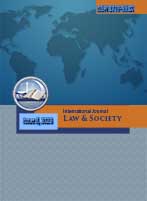Periodization of Criminal Law Policy
Keywords:
criminal law policy, periodization, norm-making, norm application, sovereignty, history of criminal lawAbstract
The article addresses the crucial issue of periodizing Ukraine’s criminal law policy. The author provides a detailed analysis of existing approaches to periodization, particularly those proposed by P.L. Fris, A.V. Savchenko, S.F. Denysov, V.V. Kuznetsov, and V.V. Babanina. Special attention is given to the criteria used for dividing into periods, such as socio-political characteristics that determined Ukraine’s independence, historical epochs, and the validity of criminal law sources.
The author refers to I.V. Kozych’s research on the functions of criminal law policy, emphasizing the importance of understanding «input» and «output» functions. This allows for the consideration of criminal law policy as a system with formation and implementation functions. Particular emphasis is placed on the fact that norm-making, norm application, and control can function separately and independently of each other.
Based on the conducted analysis, the author proposes his own approach to the periodization of Ukraine’s criminal law policy. This approach takes into account both periods when Ukraine had sovereign right to norm-making and periods when such right was absent. For the first case, the author recommends using P.L. Fris’s periodization, and for the second - periodization based on the criterion of the validity of the relevant normative legal act in a certain territory.
The article underlines the continuous nature of criminal law policy on the territory of Ukraine, regardless of the presence or absence of state sovereignty. The author emphasizes that even in the absence of the possibility of norm-making, norm application always existed, although it was based on norms created by other subjects.
The proposed approach allows for a more complete and accurate reflection of the history of Ukraine’s criminal law policy development, taking into account both periods of independence and periods of being under the rule of other states.
The article contributes to a deeper understanding of the evolution of Ukraine’s criminal law policy and provides a framework for further research in this area. It highlights the importance of considering both the ability to create laws and the practical application of criminal law norms when studying the history of criminal law policy.


